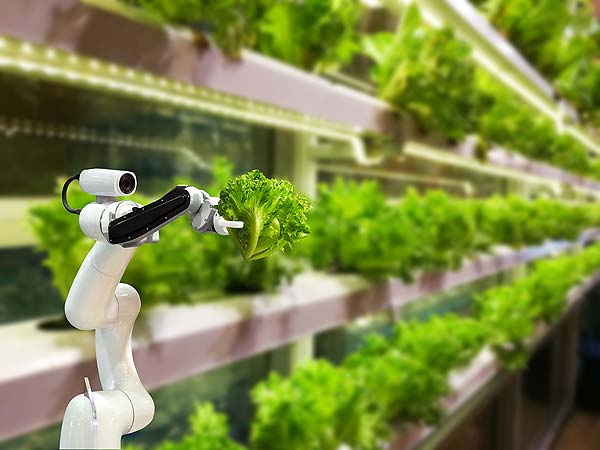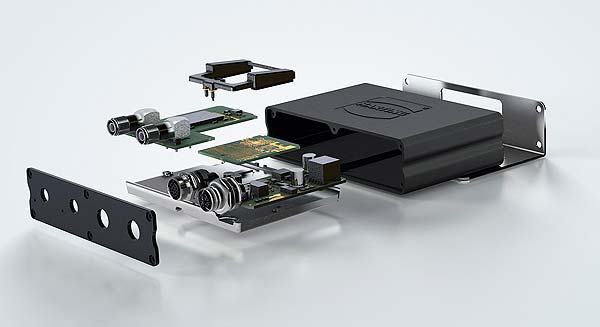
Digitalisation is increasingly important in the farming and foodstuffs industries. Photo: © itelligence AG
Progressive digitalisation is also increasingly important in the farming industry: data-supported targeted application of fertiliser and crop protection products, soil analysis sensors and autonomous operation are just a few of the buzz words in the current discussion around Farming 4.0 and Smart Farming. The potential of digital farming is the subject of the Farming and Food Technology Trends focus day organised in Bielefeld by itelligence AG in conjunction with the Technische Hochschule OWL, HARTING and other partners on 25th September 2019 (itelligence, Königsbreede 1, 33605 Bielefeld). The Technology Group presents HARTING MICA®, which enables the efficient use of arable land.

HARTING MICA® is able to control all processes and procedures seamlessly and record all relevant data.
“Smart Farming can support more productive and sustainable farming via an accurate and resource-efficient approach”, says Dr Jan Regtmeier, Director Product Management at HARTING IT Software Development. “Regtmeier demonstrates application of the HARTING MICA® and its benefits for agriculture in Bielefeld. The Edge Computer controls processes and procedures seamlessly and records all of the relevant data. “This gives farmers security, also creating consumer trust,” Regtmeier continued.
Two application scenarios show how MICA® gathers data. In the first one, HARTING MICA® records data from two sets of scales, which are used to weigh tractor and trailer, recording the weight of maize delivered. The tractor is also given a single ID to ensure that it is uniquely assigned to the crop area.
The data recorded is processed and sent to the Cloud for further evaluation. In the second application scenario, MICA records data during the critical mashing process. The data is then used for process optimisation with data analytics. “Data-supported farming allows for new approaches, ensuring sustainable food production now and in the future,” explains Dries Guth, Principal Innovation Manager and Head of the IoT Innovation Lab at itelligence. Data collated via sensors, from the soil and farming machinery and satellite imagery and fed into intelligent systems supports not only yield optimisation, but also the resource-saving application of water and crop protection products. “It is also about exploring new forms of food production, as we are now seeing with the successes in Urban Farming and Vertical Farming for example,” adds Dries Guth.
“The potential for Smart Farming is huge,” says Regtmeier with conviction. “The farming industry has only just begun to make use of digitalisation.”




